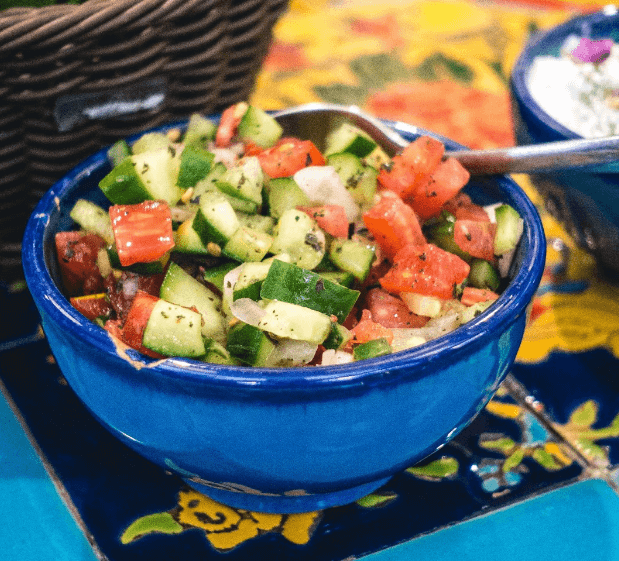When it comes to nutrition, it’s all about balance and moderation—or is it? Holistic nutrition takes the concept of balance to a whole new level. It encourages us to look beyond what we’re eating and take into account everything from our environment to our emotional state when it comes to nourishing ourselves.
If you’re ready to dive deep into holistic nutrition, you’re in the right place. We’ll explore some of the fundamentals of this philosophy, from understanding how the food we consume impacts our bodies to getting a sense of what true nourishment means on a holistic level. In the end, you’ll be armed with an entirely new perspective on nutrition that will help you make healthier choices for your body and mind—all while finding balance in your life.
What Is Holistic Nutrition? An Integrated Approach
Holistic nutrition is more than just diet; it’s an integrated approach to health that focuses on nutrition, lifestyle, and physical activity. Holistic nutrition emphasizes the importance of consuming wholesome and nutritious foods as part of an overall healthy lifestyle. It also looks at how our lifestyle choices, such as sleeping habits and stress levels, have a direct impact on our diet and overall well-being.
To maintain your health, it’s important to look at your diet holistically and understand how the foods you eat affect your body in combination with other factors such as sleep, stress levels, physical activity and environment. Whole foods like fruits, vegetables and lean proteins should be included in your meals, along with healthy fats like nuts, avocado, or plant-based oils – these provide a balanced source of vitamins and minerals that are essential for optimal health.
It’s also important to practice self-care on a daily basis. This can include making time for physical activity – even if it’s just going for a walk – managing stress levels through meditation or journaling, getting adequate sleep each night, and making sure you take care of yourself A holistic approach to nutrition emphasizes the importance of looking at all aspects of a person’s life when considering their overall health. Incorporating these practices into your life can help you to reach your wellness goals while ensuring that you feel good from the inside out.
The Mind-Body Connection: How Our Mental Health Impacts Our Physical Health
When it comes to holistic nutrition, it’s important to understand the importance of our mind-body connection. Our mental health impacts our physical health and vice versa in a powerful way. For example, feeling stressed can lead to increased inflammation in our bodies, which can lead to chronic illnesses like heart disease and cancer. On the other hand, eating nutritious foods has been shown to reduce symptoms of depression and improve our overall wellbeing—which leads us to how we think about food and nutrition.
The key is being mindful of what we put into our bodies and how it will affect both our physical and mental health. Eat foods that nourish your body while also helping you achieve a sense of calm and overall wellbeing. Instead of focusing on restriction or deprivation, make sure that you always have access to healthy choices so that you always have something delicious at your fingertips!
Whole Foods: The Foundation of a Healthy Holistic Diet
Holistic nutrition provides a foundation for a healthy diet, and that means relying on whole foods. Whole foods are, essentially, unprocessed foods that are as close to their natural form as possible, and the benefits abound. Not only does eating whole foods help keep your diet varied and nutrient-dense, it helps ensure that you get the vitamins, minerals, proteins and fats you need for overall health and wellness.
Nutrient Density
Whole foods have high nutrient density—they provide more nutrition with fewer calories. That means you can eat more food without taking in too many empty calories from heavily processed snacks and drinks like cookies, chips or soda.
Beneficial Fiber
Fiber — found in plant-based whole foods like fruits and vegetables — helps your body work optimally because it slows down digestion of starchy carbohydrates so you don’t get a sugar crash after eating them. Plus, fiber helps promote feelings of fullness so you’re less likely to overeat or snack on unhealthy options between meals.
Essential Vitamins & Minerals
Whole grains are packed with essential vitamins – B6 and folate – plus minerals like iron,magnesium and zinc which help keep your skin looking great, teeth strong and bones healthy. Plus, wholegrain carbs provide sources of long-lasting energy throughout the day without causing spikes in blood sugar levels that could lead to extra weight gain.
The healthiest approach to holistic nutrition is to build your plate around unprocessed whole foods like vegetables, fruits, legumes, nuts & seeds while limiting processed snack-foods as much as possible! With a better understanding of how
Supplements and Herbs: Nature’s Medicine for Our Bodies
You might not have considered this, but holistic nutrition recommends getting your nutrients from supplements and herbs as part of your holistic wellness routine. While real food should be the priority, sometimes a daily supplement can make a real difference in how you feel and how your body functions.
Benefits of Supplements
The right supplements can help nourish and replenish your body with essential vitamins and minerals that you may be lacking. They can give you energy, support weight loss efforts, increase cognition and focus, as well as provide strong antioxidant protection. Meaning they’re great for overall health.
Plus, some supplements containing natural ingredients (like ginger or turmeric) can help reduce inflammation or offer other therapeutic effects like calming anxiety or stress relief.
Benefits of Herbs
Herbs are another amazing resource for treating the body holistically. They are known to have powerful healing properties for conditions like headaches, nausea, muscle tension and even easing allergies. Herbal teas are a great way to make sure you’re getting optimal nutrition without having to think too much about it—just make sure you’re drinking quality herbal tea sourced from organic ingredients with no added chemicals or fillers.
In addition to that, some herbs have been shown to improve digestion and slow down the aging process (think: anti-aging elixirs). So, why not give nature’s medicine a try? Whether it’s an herbal tea blend or supplement capsules – they may just be the answer you’re looking for!
















Leave a Reply